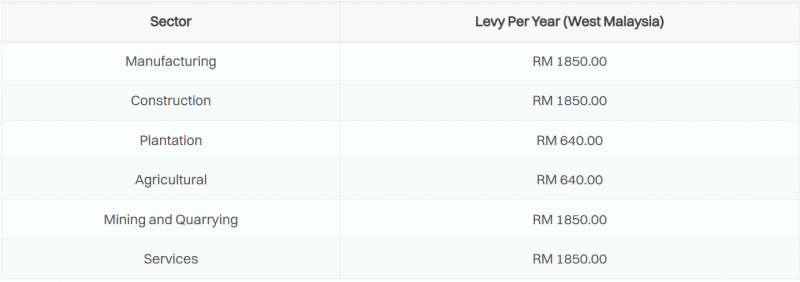
Hiring foreign workers in Malaysia comes with various responsibilities for employers, one of which is paying the foreign worker levy. This levy is a mandatory fee imposed by the Malaysian government on employers who hire foreign workers to work in their organizations. It’s crucial for employers to understand the levy’s purpose, the rates, and how it affects their business operations. This guide provides a comprehensive overview of the foreign worker levy in Malaysia.
What is a Foreign Worker Levy (FWL)?
A Foreign Worker Levy is a financial contribution imposed by governments to regulate the employment of foreign workers. This levy is part of the government’s policy to control the number of foreign workers in the country and to encourage the employment of local citizens. The levy varies depending on the sector in which the foreign worker is employed, and it is an annual payment that employers must make to continue employing foreign workers.
Who Needs to Pay the Foreign Worker Levy in Malaysia?
If you hire foreign workers in Malaysia under any of the following work visa passes, you are legally required to pay a monthly levy for each non-citizen worker employed:
- Employment Pass
- Temporary Employment Pass
- Professional Visit Pass
The obligation to pay the levy starts as soon as the foreign worker is issued a valid work pass that authorizes their employment. The amount you need to pay is determined by the number of foreign workers you employ and the specific sector in which they are assigned. Each sector has its own levy rate, which is applied on a per-worker basis.
Levy Payment Rates and Categories
Levy for foreign worker payment rates in Malaysia for foreign workers vary based on the sector. It’s essential to stay informed about the latest rate updates and adjustments to avoid miscalculations. Based on Ministry of Home Affairs, here are levy payment rates in Malaysia:

Why Do Employers Pay A Foreign Worker Levy?
Employers in Malaysia are required to pay a foreign worker levy for several reasons:
- Regulating the Employment of Foreign Workers: The levy acts as a regulatory measure to control the number of foreign workers in the country. By imposing a cost on hiring non-citizen workers, the government encourages employers to prioritize the employment of local workers first. This helps to maintain a balance between foreign and local labor in the workforce.
- Revenue Generation for Public Services: The funds collected from the levy contribute to the government’s revenue, which can be used to improve public services and infrastructure. This is particularly important as the presence of foreign workers can increase the demand for these services.
- Offsetting the Costs of Foreign Labor Management: The levy helps cover the administrative costs associated with managing foreign labor, including immigration control, enforcement of labor laws, and the provision of essential services like healthcare and housing for foreign workers. This ensures that the government has the necessary resources to support and monitor the foreign workforce effectively.




